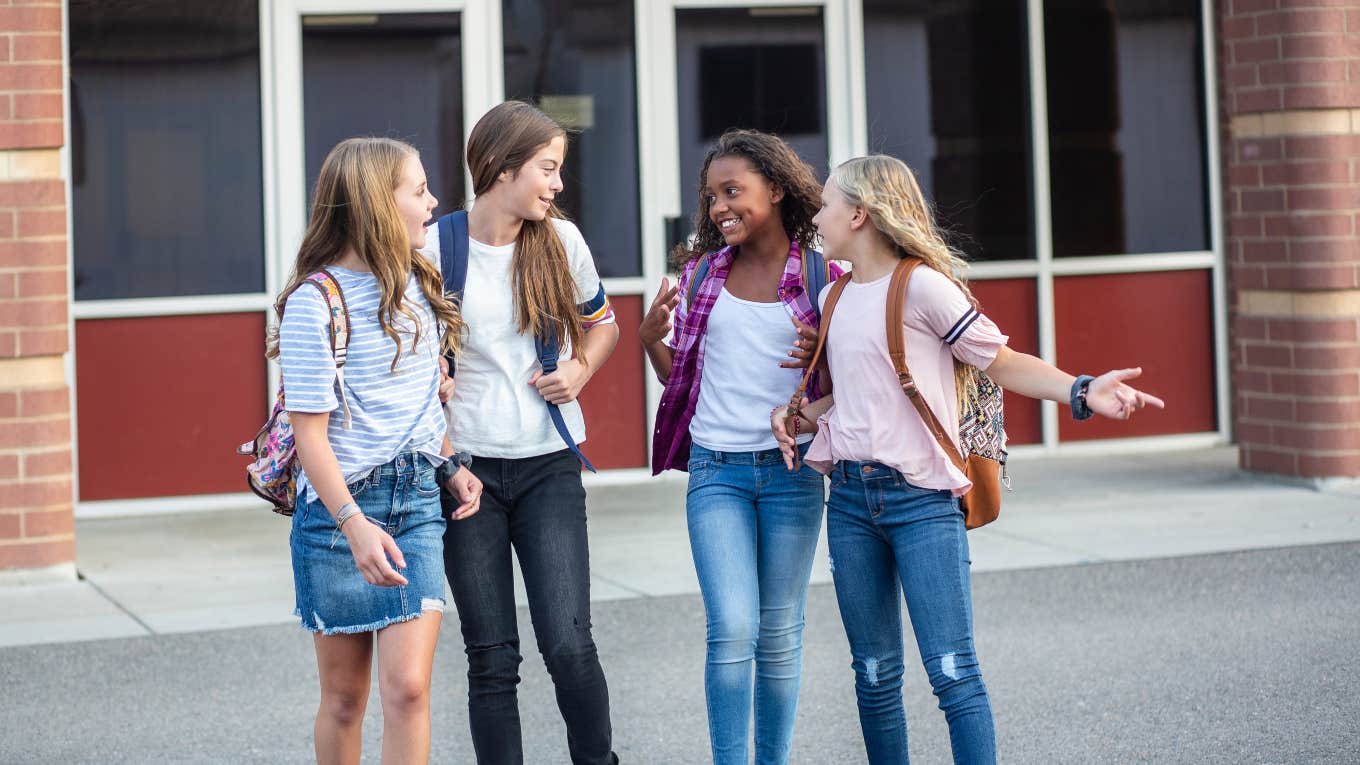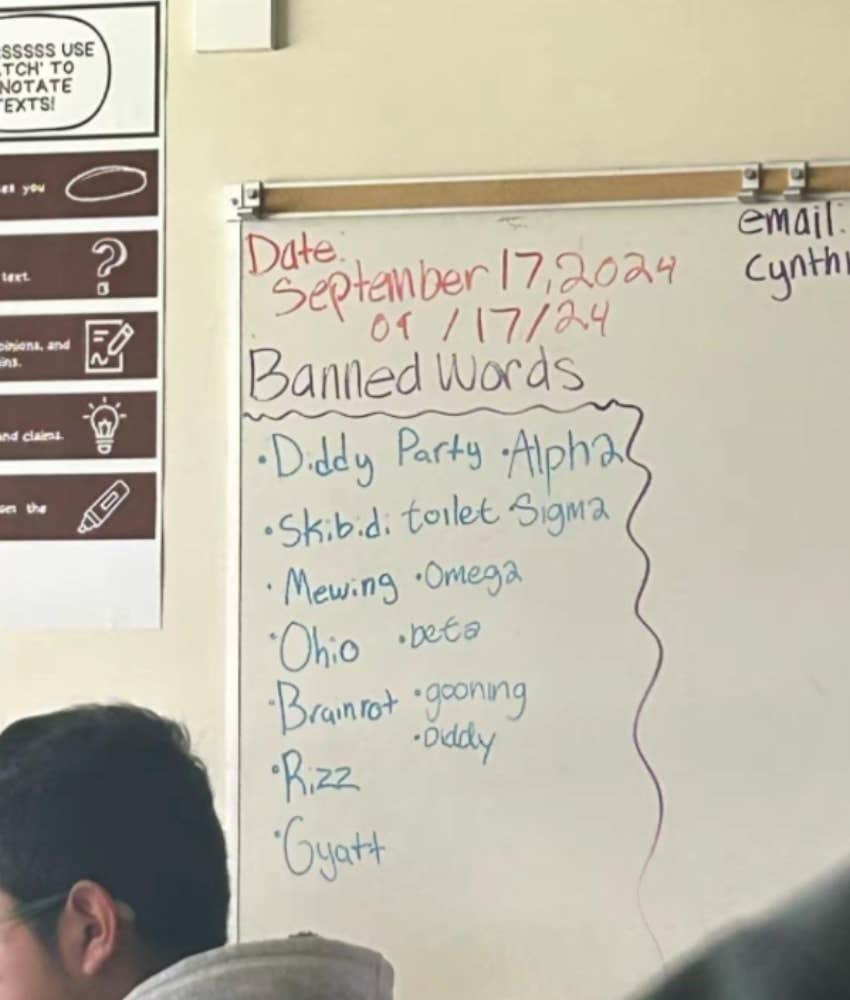Student Shares A Photo Of All The Slang Words Their Teacher Has Banned From The Classroom
Slang is a part of our culture, in and out of the classroom.
 Brocreative | Shutterstock
Brocreative | Shutterstock We all know there are things you can get in trouble for saying at school. Usually, this doesn’t include popular slang words. But times are different now and the younger generation can often seem to be speaking an entirely different language when it comes to slang.
One teacher banned their students from using certain slang words in their classroom, and they might just be teaching a smart lesson in the process.
A student shared the slang words that their teacher has forbidden in the classroom.
One student took to the internet to share a picture of slang words written on their classroom whiteboard that are “banned.” It was re-shared on Reddit in the “Millennials” community.
 Reddit
Reddit
The list included all kinds of Gen Alpha slang favorites, from “rizz” to “Ohio” to “brain rot.”
Yes, it’s true that the name of a state has now been banned in some classrooms. According to The Columbus Dispatch, “Ohio” used as a slang term can mean “strange, weird, cringe or dumb.”
The Reddit poster asked a very interesting question: “Did your school ever ban words?”
Most commenters were quick to chime in and say that curse words were definitely banned, but one person had a unique take.
“Millennial teacher here,” they said. “I only ban curse words (for obvious reasons). However, I use many (not all) of those words in my own speech at school to make the students cringe because nothing makes kids like stuff less than adults doing it.”
Another Redditor was kind enough to offer a useful example, saying, “Real alphas with rizz don’t forget to do their math homework!”
Someone else responded and said, “This is exactly what I do around all young people in every situation. They need to hear how dumb this [expletive] is going to make them sound when they’re old enough to have children.”
So, while it seems more likely that this teacher was just fed up with their students using certain words that aren’t included in their own vocabulary, it’s actually possible that they were trying to teach their students a valuable lesson: There's a time and a place for everything.
Slang may seem fun to use in the moment, but can affect people’s perception of you, especially when you’re older. And especially when it's used outside of casual conversations with your peers.
While slang may cause some to cringe (or, perhaps, seem 'Ohio' to them), it’s a centuries-old tradition that doesn’t look like it’s going away any time soon.
Per the Oxford English Dictionary, slang actually has quite a rich history dating back to the 1700s. In 1724, the word “slango” was first used in the "London Journal," in which an anonymous writer commented on the “trade and slango” of poetry — essentially the bad parts of poetry that a highbrow literary critic did not care for.
Several years later, slang began to be used more frequently in everyday speech.
“In the 1740s, ‘slang’ first crystallizes into words with a very specific context and a distinctive range of related meanings, emerging as a word chiefly found in reports of the speech of an underclass of thieves, and beggars, and the itinerants who often associated with them and shared much of the same vocabulary,” the Oxford English Dictionary said.
Through the years, slang has undergone many different uses. Eventually, it came to mean what we know it as today. Merriam-Webster defined this as “language peculiar to a particular group.”
Every generation has had its own slang.
Now, slang is what we know it to be: words or phrases in the popular vernacular for a specific group of people. Slang typically varies from generation to generation, something How Stuff Works highlighted.
Their lexicon of slang went all the way back to the 1920s with terms like “bee’s knees” and “ducky.” Newer additions include “hits different” and “bet.”
While slang words may be looked down upon, especially in a classroom, due to their informal and often improper nature, they are a part of our culture. Language is a living, breathing thing, after all.
Banning students from using such words may actually have a negative impact, as it could make them feel less connected to their peers. At the same time, however, it could just teach them to reserve the vernacular for outside the classroom, boardroom, and office.
Mary-Faith Martinez is a writer for YourTango who covers entertainment, news and human interest topics.

